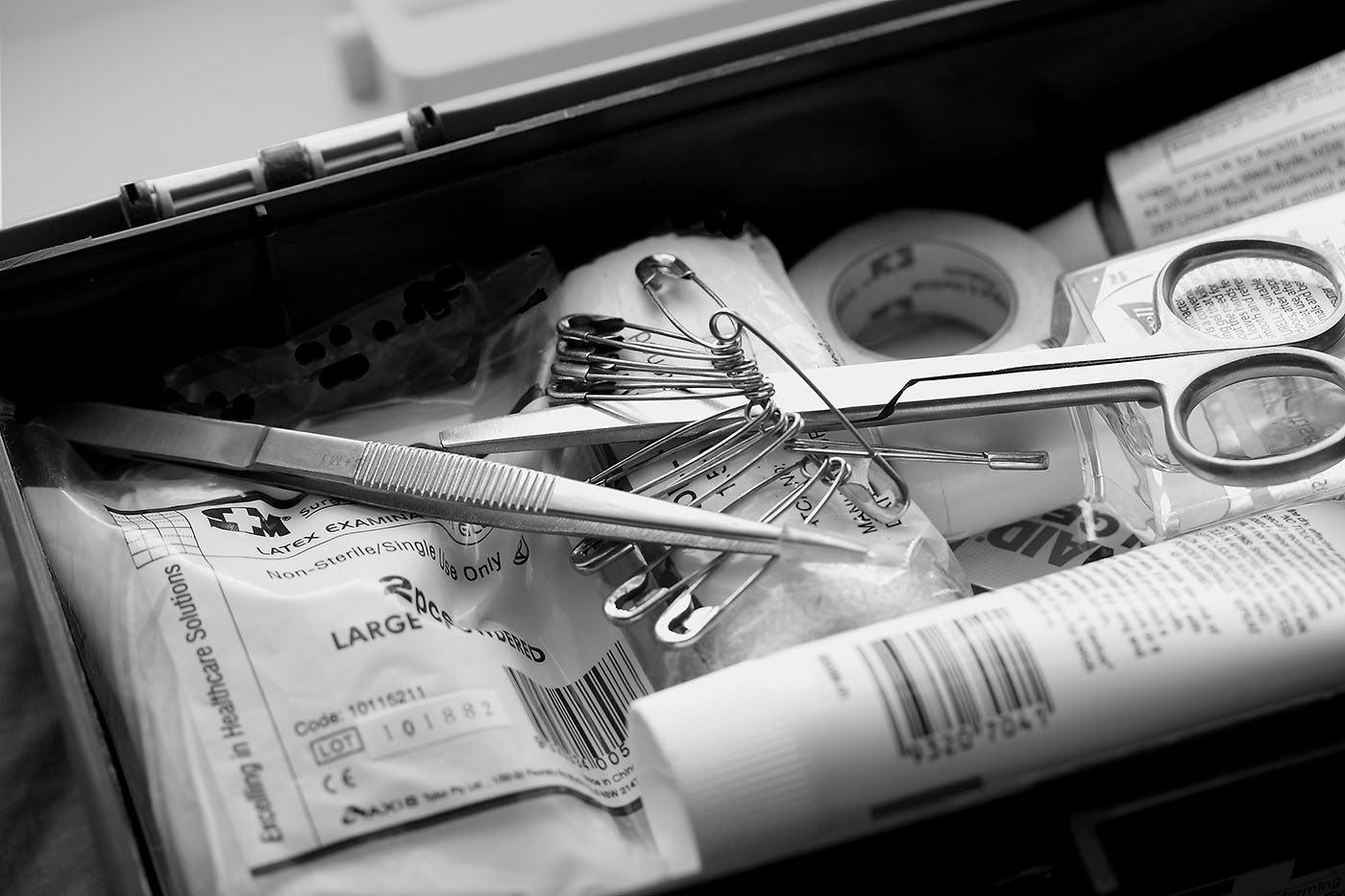Shop Safety
This policy applies to work areas that use machinery for woodworking, medal grinding, drilling etc. NC-OSHA contains a number of safety standards which are directed toward the safety of employees who operate these type of machines.
Point of Operation Guarding
NC-OSHA requires that points of operation such as saw blades, grinding wheels, drive belts etc. be enclosed with a guard or shielded, to protect against operator contact. Generally these protective features are provided with the machine and should not be removed.

First Aid Kits
Recommended that all shop areas be supplied with first aid kits.
Eye Protection
Cutting, grinding and drilling operations present a hazard of flying chips and pieces. Eye protection such as dust goggles or safety glasses are always required when using these machines Signs should be posted "Eye Protection Required When Using This Machine".
Electrical
All shop machinery must be properly grounded and the electrical disconnect or circuit breaker identified. Also the electrical connection must be arranged so that activated machines do not automatically restart after power failures. Extension cords are permitted only with portable appliances or fixtures. While in immediate use:
- Each extension cord shall be plugged directly into an approved receptacle and shall, except for approved multiplying extension cords, serve only one appliance or fixture.
- The current capacity of the cord shall not be less than the rated capacity of the appliance or fixture.
- The extension cord shall be maintained in good condition without splices, deterioration or damage.
- The extension cord shall be of the grounded type when servicing grounded appliances
or fixtures.
Extension cords and flexible cords shall not be affixed to structures, extended through walls, ceiling floors, under doors or floor coverings, nor be subject to environmental damaging physical impact.
Dust Control
NC-OSHA currently does not classify wood dust as a toxic dust. However, excessive accumulation of dust in the air and on surfaces is a serious fire hazard. The toxicity of metal dust depends on the type of material being used in the machine. As a general rule the need for special ventilation depends on the size of shop and frequency of use. However, all shops should have a portable shop vac and be cleaned frequently.
Finish Coatings, Adhesives and Oil Base Paints
Section 14 of the Safety and Health Program Manual covers flammable liquids. Each shop area is encouraged to minimize the quantity of flammables such as finishes, glues and oil based paints which are stored. In no case shall the total quantity on hand exceed 10 gallons. Most flammable liquids can also present a health hazard due to inhalation of fumes if the work area is not properly ventilated.
Gas Cylinders
Gas cylinders must be secured and used in an upright position. The valve protection covers must be in place when the cylinder is taken out of service or moved. Oxygen cylinders must be kept oil free and stored separated from flammable gases and other ignition sources.
Gasoline
Gasoline powered equipment must be refueled outdoors.